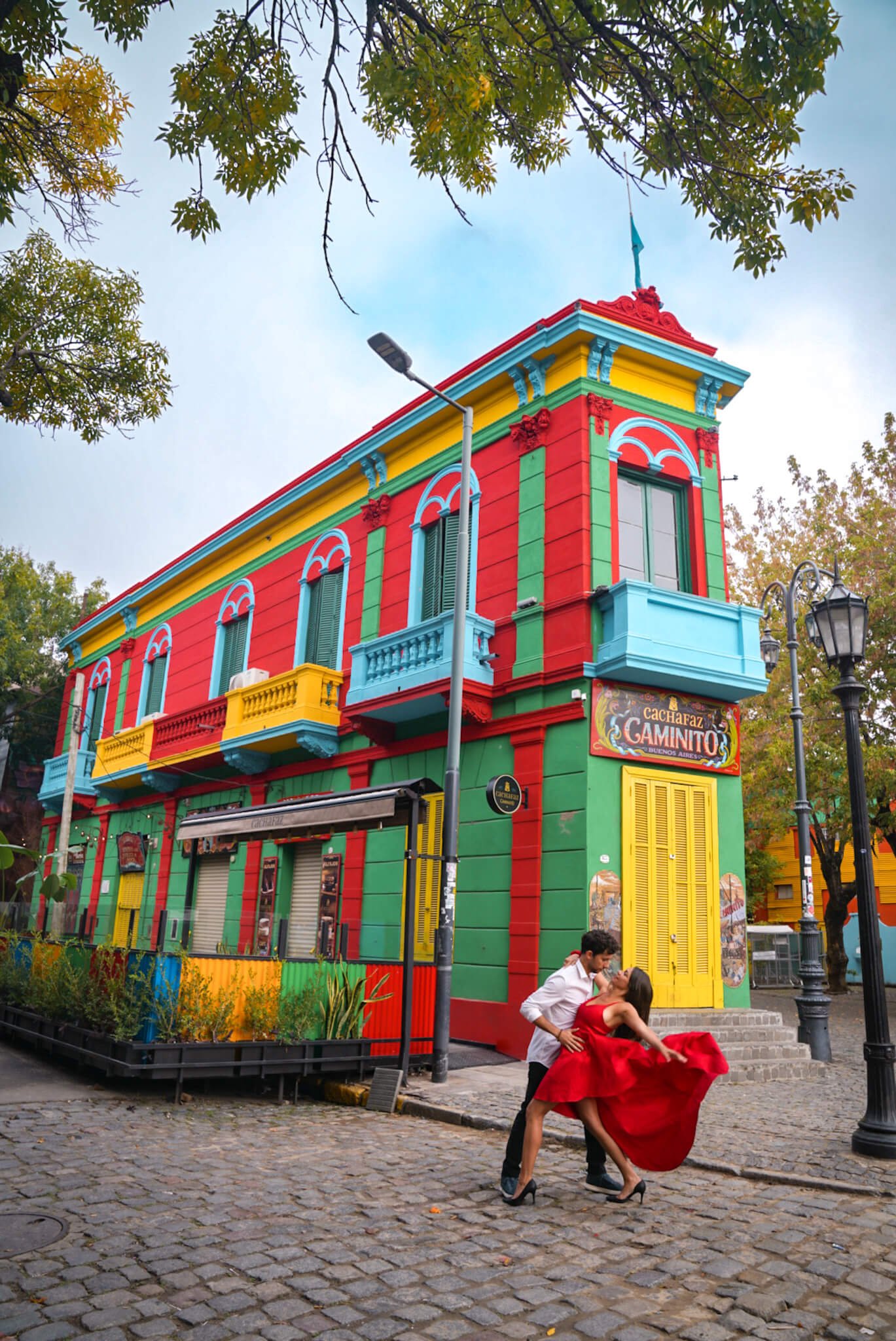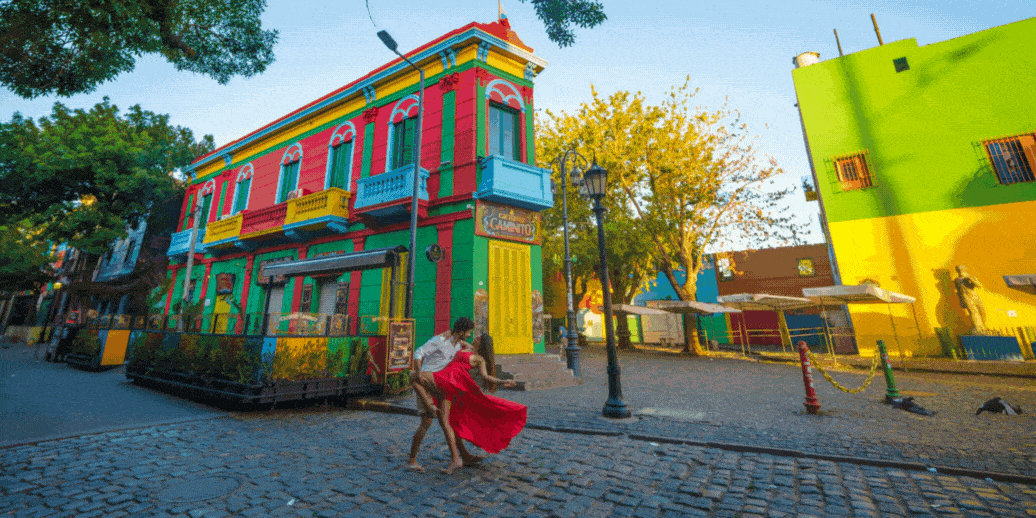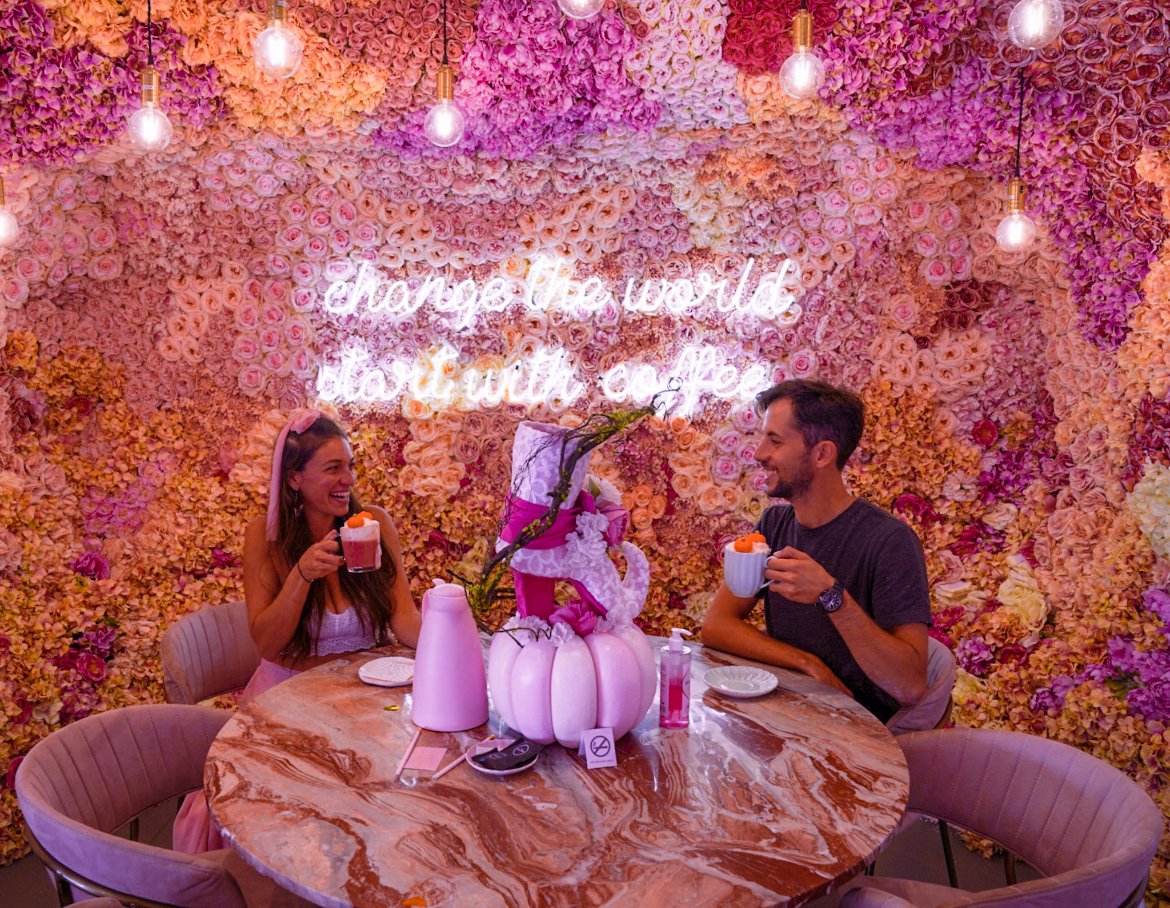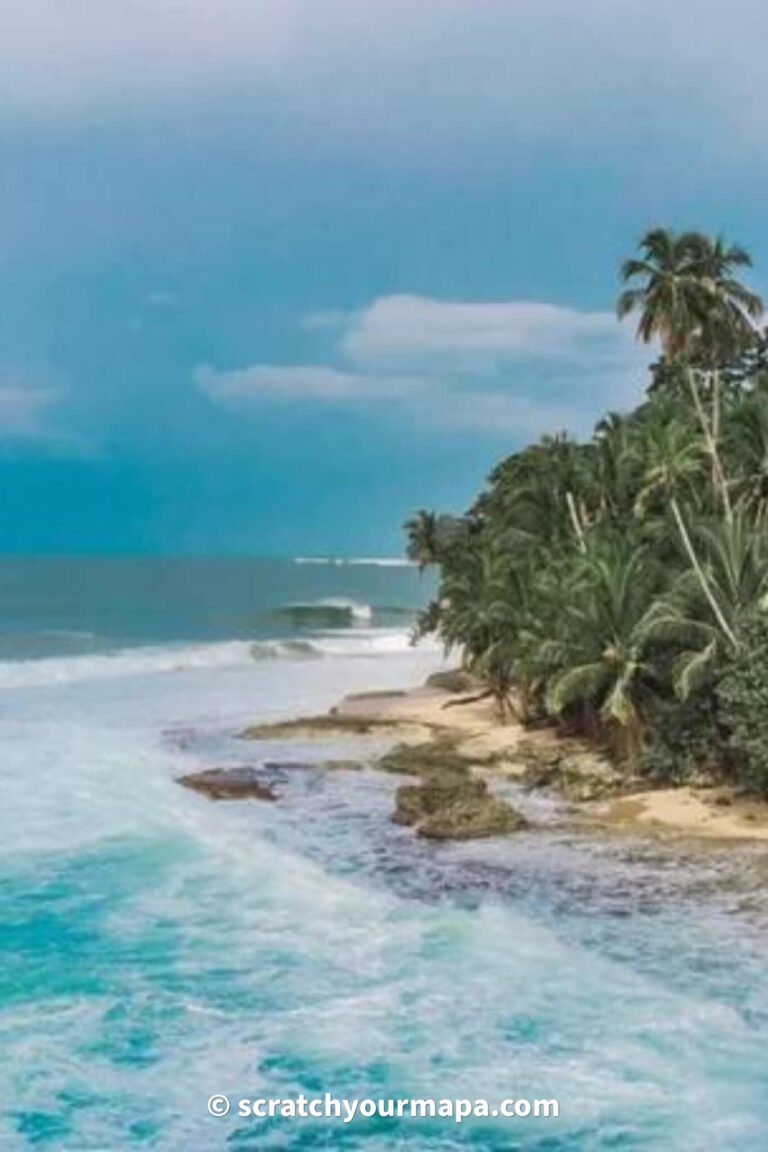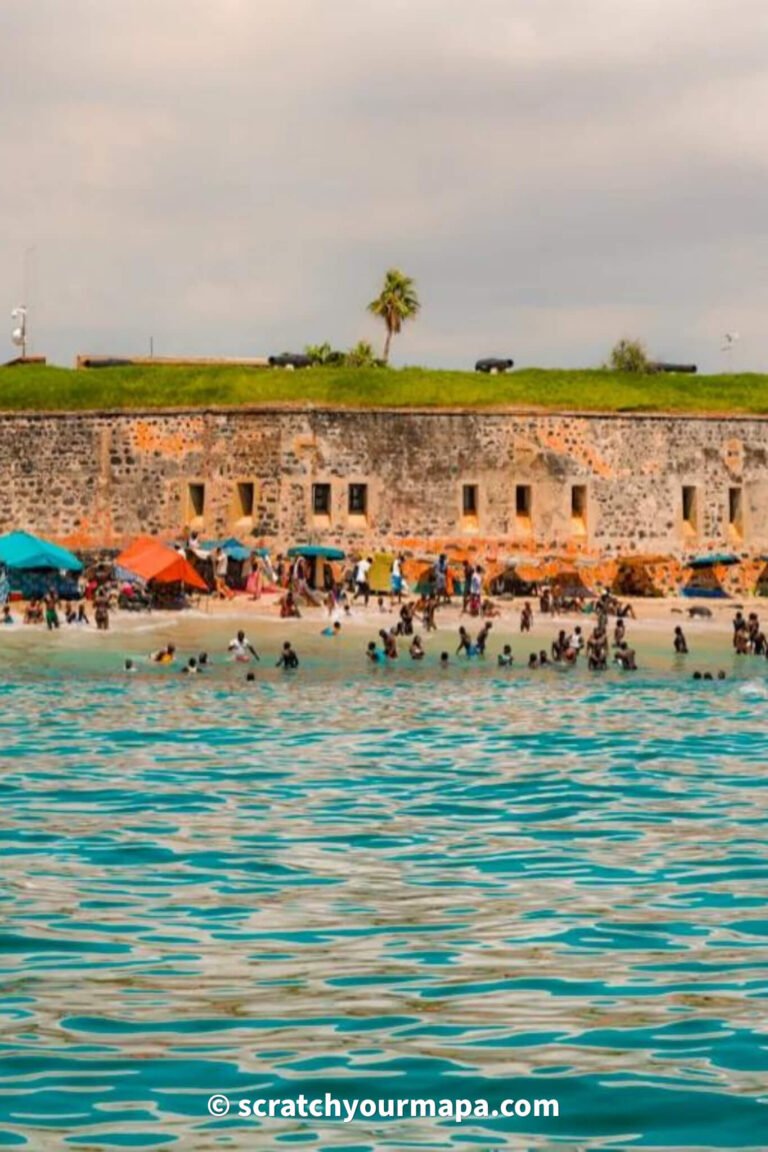A Local’s Guide to the Best Things to Do in Buenos Aires
There are so many amazing things to do in Buenos Aires. The capital of Argentina is a city of mixtures, where architecture styles live next to each other, customs from different cultures blend, and people's roots are literally from all over the world.
Buenos Aires is the most populated city in Argentina, with over 3 million people living in it. It has plenty to offer for every life style and taste. There are many parks and outdoor gyms for the healthy ones, stylish restaurants for the foodies, and a never ending nightlife for those who like to party.
Here you will find everything you need to know before arriving to Buenos Aires.
*Please note that this blog post may contain some affiliate links, which we make a small profit on, at zero cost to you. Links are only used on products & services that we've used and believe in, to give you the best buying experience. Purchasing from these links helps us to continue providing free travel guides for you- so thank you for your support!
Where is Buenos Aires?
When we tell people that we travel back and forth from New York to Buenos Aires, they don't really understand just how far Buenos Aires is.
Argentina is the southern most country in the world, located just north of Antarctica! Buenos Aires is located along the coast in the middle of the country, and is the biggest hub in Argentina.

Buenos Aires is the capital of Argentina, all the way in the south of South America.
How Can I Get to Buenos Aires?
Being that Buenos Aires is pretty far from even other cities in South America, the best way to get there is always to fly.
There are some cruise ships that stop in Buenos Aires, although there are less and less of them.
Where Do You Fly Into For Buenos Aires?
The biggest international airport is Ezeiza (EZE) which is about 45 minutes from the center of the city. There is also a small airport right in the center of Buenos Aires, but this is mostly for domestic flights, and some others coming from cities like Santiago, Chile, or Rio de Janeiro in Brazil.
European cities that fly direct to Buenos Aires include Argentina, Frankfurt, London, Madrid, Paris, and Rome.
US cities that fly direct to Buenos Aires include Atlanta, Dallas, Houston, Miami, and New York. Other cities around the Americas that fly direct to Buenos Aires include Asuncion, Bogota, Cancun, Cochabamba, Florianopolis, Joao Pessoa, Quito, Maceio, Mexico City, Montevideo, Lima, Panama City, Punta Cana, Rio de Janeiro, Santiago, and Sao Paulo.
Flight Tip: Using Skyscanner you can use the calendar to see which are the cheapest dates to fly to Buenos Aires.
Search for a flight to Buenos Aires:
How to Get to Buenos Aires From Other Cities in Argentina
Being that Argentina is so huge, every airport in Argentina connects with Buenos Aires, and if you are coming from abroad and visiting another city in Argentina, chances are very high that you will have to connect in Buenos Aires.
Don't want to fly? You can take a bus to Buenos Aires from plenty of other cities around Argentina.
Entry Requirements for Argentina
Argentina is back open for travel! Here's what you need to know about entering.
Visa Entry Requirements for Buenos Aires, Argentina
Many countries can enter visa-free into Argentina for a period of up to 90 days. You can check the list of countries to see if you can enter visa-free.
Local Adjustments
Whenever traveling somewhere new, there are things that you may forget about, that may be different from where you are coming from. Here are a few of the local adjustments to put into consideration while traveling to Argentina.
Language Spoken in Buenos Aires
The official language of Argentina is Spanish. However, be prepared for a very different type of Spanish. Argentinians have a particular accent. The way they speak is kind of sing- songy like the way that Italians speak. They also pronounce the y sound as "sh" which can be particularly confusing for those that don't speak Spanish as a first language.
Learning a bit of Spanish will definitely help you get around. That being said, Buenos Aires is a big city, so there are plenty of people that also speak English.
Currency
Argentina is one of the most unique places in the world when it comes to currency conversion, and we're about the explain why.
Unfortunately, the economic situation in Argentina is not in great shape. There is an insanely high inflation rate, and the US dollar is in high demand. This is very sad for the citizens of Argentina, but is very beneficial for tourists, as everything is super cheap.
Not only that, but because the dollar is in such high demand, places incentivize you to spend cash over card, and things are 50% off when paid in dollars. Insane right? So you can put your credit card away and get ready to use those dollars.
What is the Best Currency to Use in Buenos Aires?
Make sure to bring a lot of USD in cash with you, and then you can exchange them on the streets at the blue dollar exchange rate (normally double of what the official rate is).
What Plugs are Used in Buenos Aires?
Argentina uses different plugs than the rest of South America. The associated plugs are types C and plug type l. Plug C is the one that has two round pins (like Europe) and plug type I has three flat pins in a triangular pattern which are curved outwards. The country of Argentina operates on a 220V supply voltage and 50Hz.
Is the Water in Buenos Aires Drinkable?
The tap water in Buenos Aires, and throughout Argentina is very pure, and perfectly great to drink from the tap. We suggest investing in a refillable water bottle to carry with you around the city.
Tipping Culture in Buenos Aires
It is customary to tip in Buenos Aires, but only in restaurants. While in the US we tend to tip drivers or services like salons, this is not the case in Argentina, and tips are usually only for dining experiences.
How Much Do You Tip Waiters in Buenos Aires?
The tipping culture throughout Argentina is 10% of the bill while in restaurants. Service is never included in the bill, so it is always great to have some cash to put on the table after your meal.
Places to Stay in Buenos Aires (by neighborhood)
It's hard to define the best possible location to stay, so we will narrow them down according to what we will recommend you to see to do. After that, we will give you a small list of places to stay away from, since certain areas can be dangerous.
The recommended choices are based on access to public transportation (especially subway), distance to touristic spots, and safety & security levels on a general basis.
Recoleta
It is a beautiful but expensive neighborhood. Recoleta is highly recommended for its proximity to the subway as well as a lot of places to visit, especially when it comes to going out at night.
Palermo
Palermo is the largest neighborhood in the city. It has many nice things to see during the day and even more things to do at night. This area is full of bars and night clubs. It also has a subway line going across it, making it well connected to the center. In our opinion, this is the best area to stay in the city when it comes to dining and safety.
Microcentro (City Center)
There are many hostels & nice hotels here. Pretty much all historical spots to visit are in this area, and it's also very accessible from here to any other area in the city (and even outside it).
You can do a lot within walking distance, and stroll through the daily chaos of a modern city during the working week.

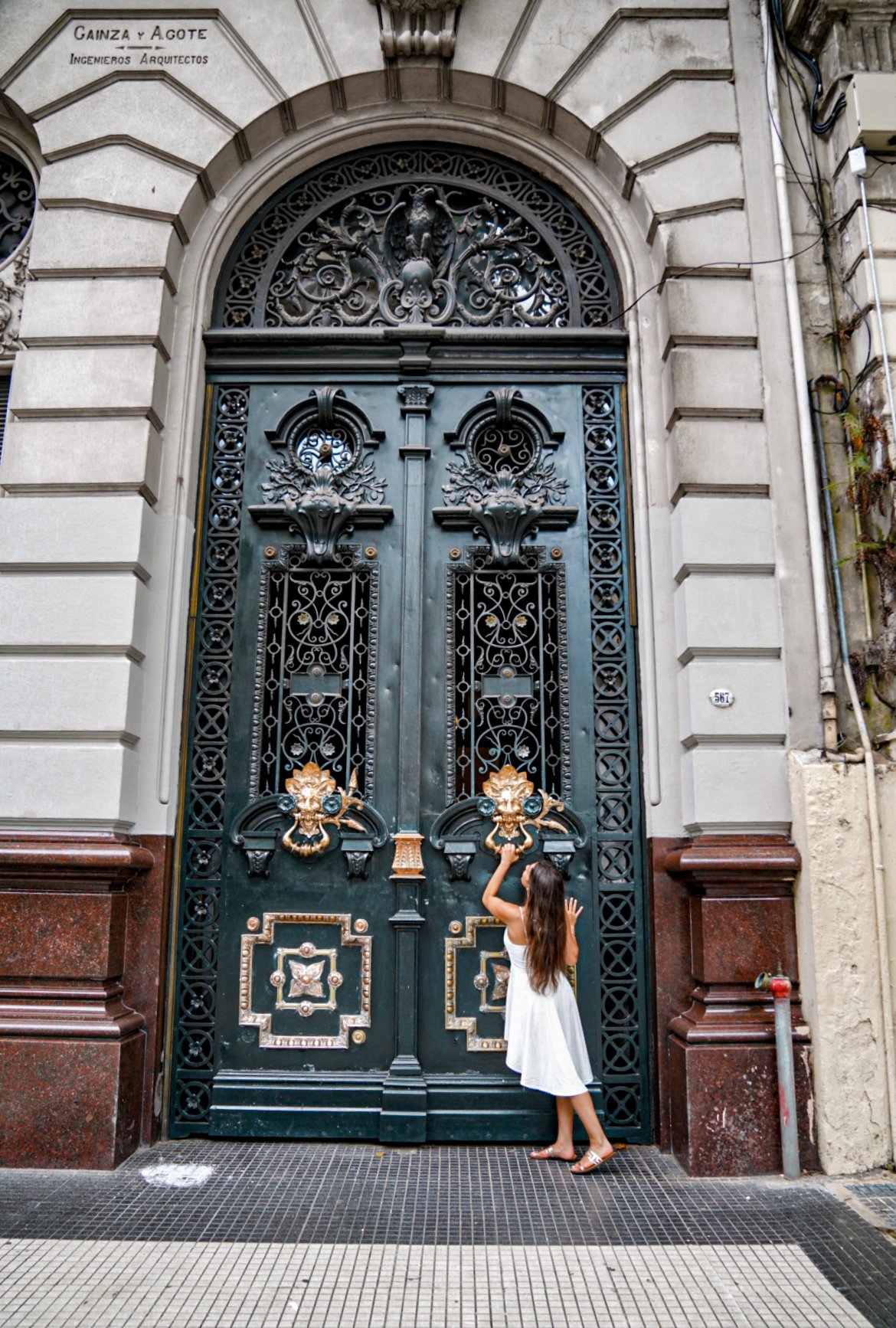
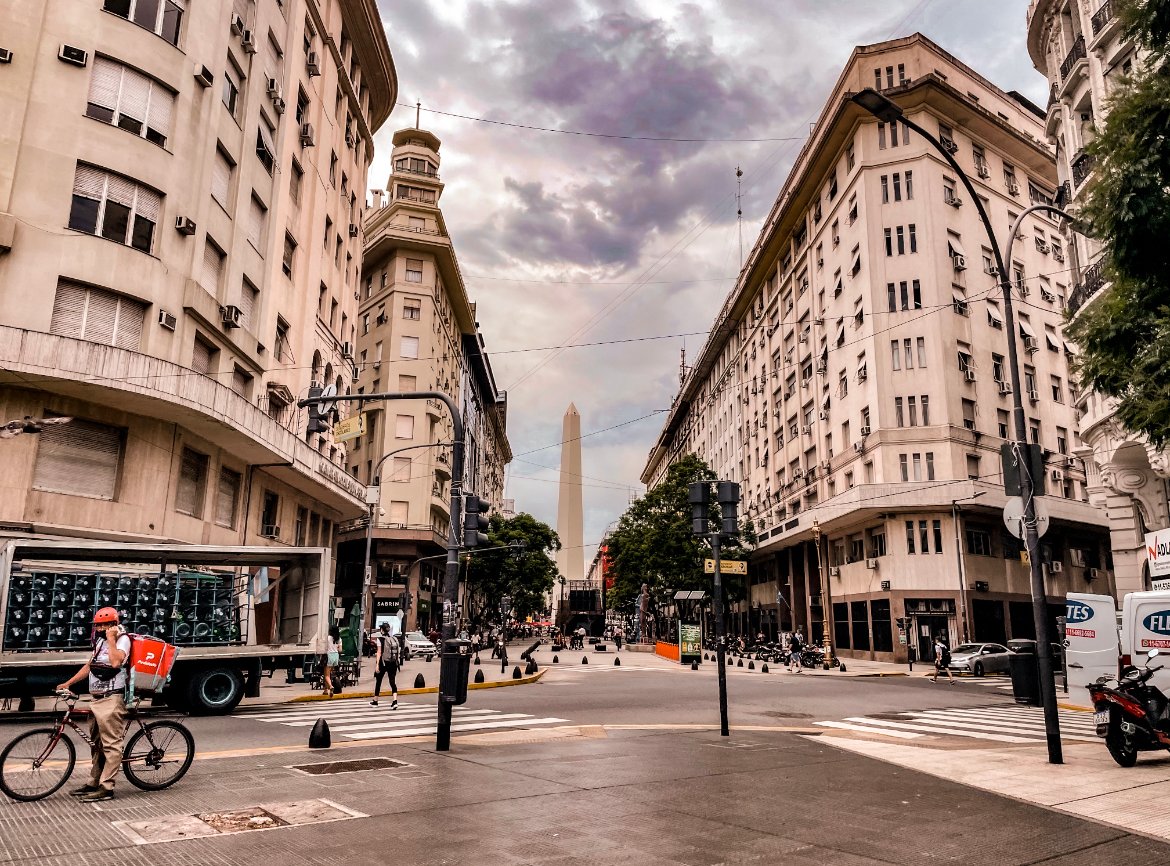
The Microcenter is where the business and historical center of Buenos Aires.
Other Neighborhoods to Consider
Almagro, Villa Crespo & Caballito are other neighborhoods worth checking out. Situated on the outskirts of Palermo, they all have access to the subway network, and they are relatively close to many popular places in the city.
Places to Consider Not to Visit
As we mentioned before, Buenos Aires is a big city, and it has a lot to offer. However, like most large cities, there are certain areas that you should probably not visit, since they are not very safe.
The city is limited in the south by a contaminated river known as the "Riachuelo". The neighborhoods next to this river are the ones we suggest you to keep some distance from.
If you are not sure about a place you want to visit, or if you want advice, feel free to message us. Fede is originally from this city so he knows it very well. We will be happy to assist you with your travels!
Things to Do in Buenos Aires: What to See
As a big city, Buenos Aires has a lot of interesting places to visit; from parks to historical places. and from cultural centers to malls that used to be huge fruit & vegetable markets.
We will cover two main categories, historical and recreational, to make a little city map in order for you to organize your trip better.
Historical Places in Buenos Aires
These are the top spots to visit if you want to learn more about the history of the city.
Casa Rosada
The "pink house" is the executive mansion and office of the President of Argentina. It's located in the very city center, right next to Plaza de Mayo.

La Casa Rosada is the Argentinian version of "The White House".
Plaza de Mayo
Plaza de Mayo is Buenos Aires' main square. Around it you will find several historical buildings like Casa Rosada and Cabildo. The square is a lovely place to walk around and enjoy the old French style architecture.
Cabildo
In front of Casa Rosada, and across Plaza de Mayo, you will find the Cabildo. This building was once used as the public building in Buenos Aires. It was also as seat of the town council during the colonial era, and the government house of the Vice royalty of the Río de la Plata. Today the building is used as a museum.
What's also interesting about this building is that they actually cut it in order to make space for Avenida de Mayo (one of Buenos Aires' most important Avenues). In the picture below you can see how it used to look like.
Congress
Just 10 blocks from the Casa Rosada (walking down Av. De Mayo) you can find one of today's most important buildings, the Congress. It's the legislative branch of the government of Argentina.
Kilometre Zero for all Argentinian National Highways is marked on a milestone at the Congressional Plaza, next to the building.

The Congress is one of the most beautiful buildings in Buenos Aires.
Diagonal Norte
Avenue Roque Saenz Peña (a.k.a. Diagonal Norte) is a diagonal street that connects the Obelisk with Plaza de Mayo. It is 5 blocks long only, but it has an incredible amount of fascinating buildings, architecture wise.
What's interesting about Diagonal Norte is that the massive buildings have all the same height as the Obelisk.
Obelisk of Buenos Aires
The obelisk is a historical monument created to commemorate the 400th anniversary of the foundation of the city. In that particular spot there was a church, that was demolished to create 9 de Julio Avenue, where the Argentinian flag was raised in the city for the very first time.
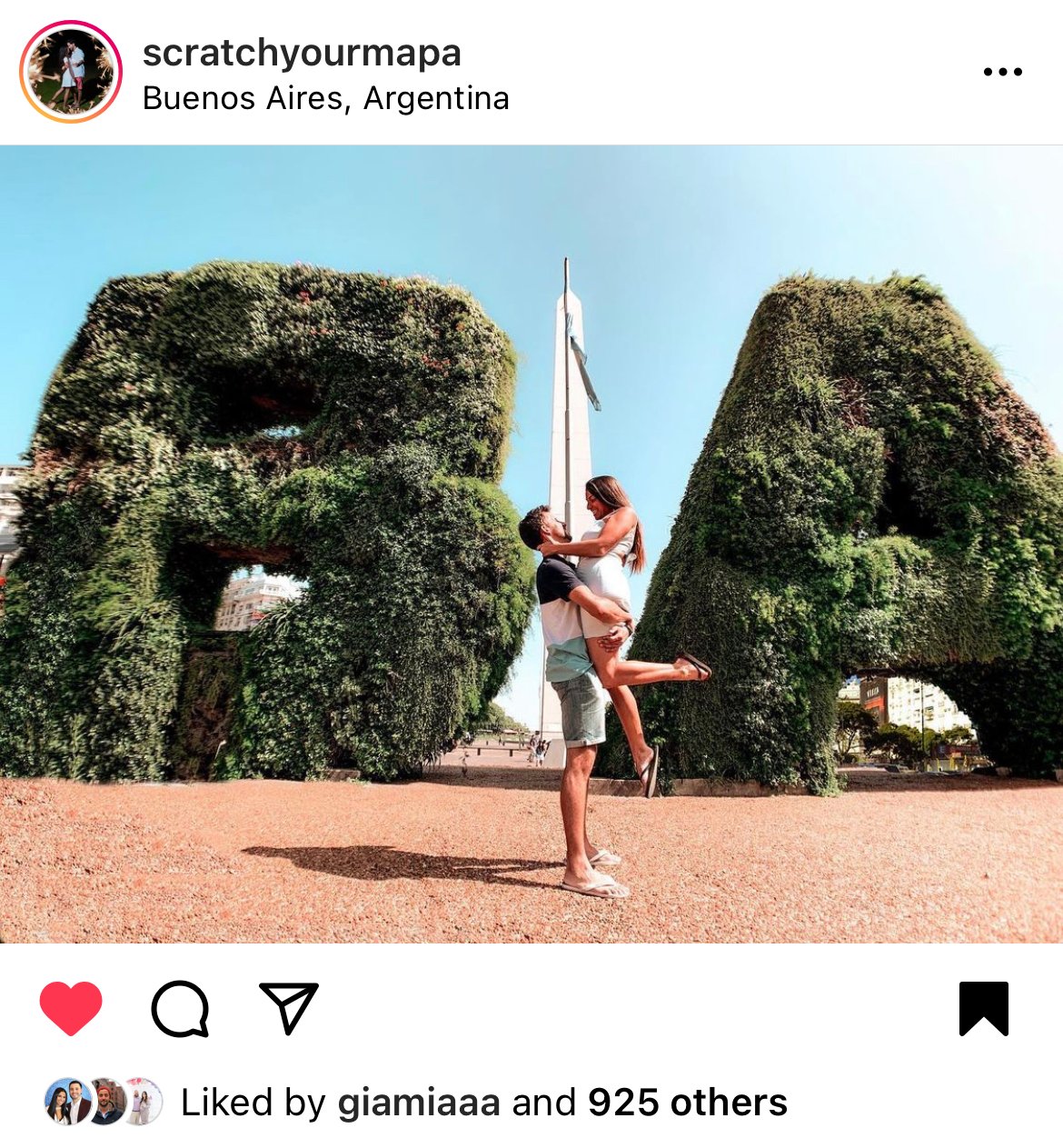
The Obelisk of Buenos Aires is one of the major icons of the capital.
9 de Julio Avenue
With its 140 meters (459 feet) of width, it's considered one of the widest streets in the world, as well as one of the busiest in the city. At night you can see all the advertising lights shining, creating a mini New York out of it.
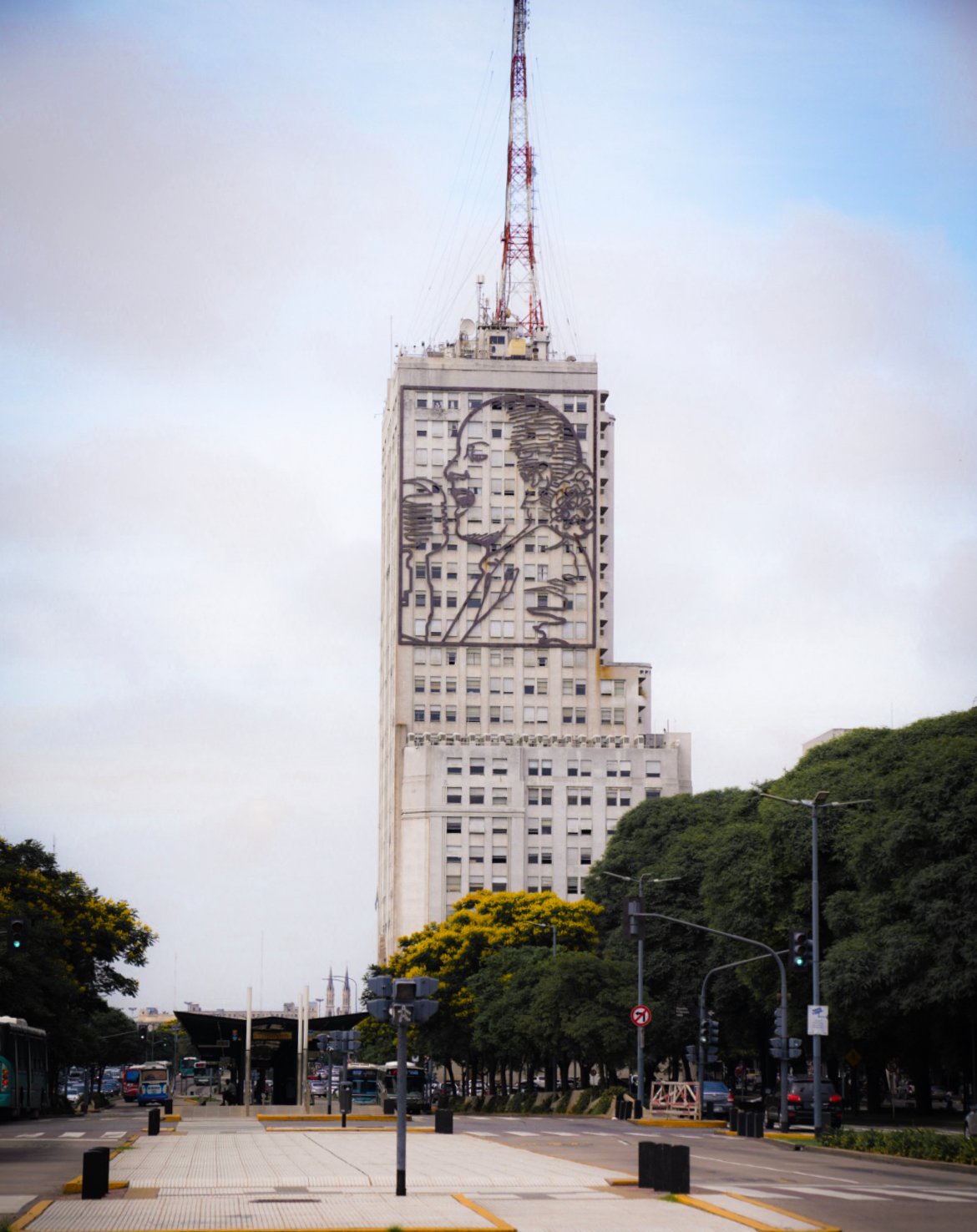
Avenida 9 de Julio is one of the main streets to check out in Buenos Aires.
Supreme Court of Justice
This main building is located just a few blocks away from the Obelisk. It's takes up an entire block, and is magnificent from the inside out.
Teatro Colón
Teatro Colon is a world-recognized opera theater. It was named once as the "best lyric theater in the world" by Travel365, which is one of the most visited travel websites in the world. It's architecture and acoustic are remarkable, and it is a beautiful place to photograph.
Florida Street
Do you want to feel the dynamics of a chaotic and active city? Find this street and watch people walk it at a very fast pace. It's full of stores of any kind, and there are many street artists showing their talents here.
Things to See in Buenos Aires: Recreational Places
Since we have a lot to cover, we think it's better to keep your guide organized in two sub-categories: Indoor & outdoor places to visit.
Indoor Things to Do in Buenos Aires
Here are some things to do in Buenos Aires that are not weather dependent.
Gûerrin Pizzeria
It's no secret that Argentinians have a lot added in their culture by the Italians. Therefore, it shouldn't be a surprise that there's good pizza here. Gûerrín pizza place has been a classic in Buenos Aires since 1932.
What's amazing about this place is that there's space for not less than 20 people to eat standing. We recommend you to try the "fugazzeta with ham" flavor. It has cheese, ham, onions and a touch of magic.

Having a typical slice of Argentinian pizza is one of the best things to do in Buenos Aires.
Abasto Shopping Center
Once a fruit & vegetable market, Abasto Shopping Center is now a big mall and a symbol of the city. Its architecture is fascinating, and if you like malls, you will love all it has to offer to its visitors.
Recoleta Cultural Center
Recoleta Cultural Center is right next to Recoleta Cemetery (see outdoor places). There are always free art exhibitions and a craft fair on the doorstep (again, see outdoor places). In addition there are street artists.
Malba (Museum of Latin American Art of Buenos Aires)
This is an International & prestigious museum with several pieces of incredible art. The entrance fee is worth it without a doubt.
El Ateneo Grand Splendid
It's a bookstore, but not any bookstore. It is designed inside of what was once a theater (Grand Splendid Theater) with it's original architecture intact. El Ateneo Grand Splendid is literally the second most beautiful bookstore in the world. If you're a book or a theater fan, coming here is a must for things to do in Buenos Aires.

Ateneo Splendid is one of the most beautiful book stores in the world.
Kirchner Cultural Center
It's a space for music shows, painting expositions and all kind of art events. The building used to be Central Post Office, built in 1928, so its architecture is magnificent.
Outdoor Things to Do in Buenos Aires
Here are some of our favorite things to do in Buenos Aires to enjoy the outdoors.
Palermo's Woods
There's a huge park in Palermo neighborhood. It's a great place to run, skateboard, and rollerblade. It's also the perfect spot for a picnic or to just relax for a bit. Palermo's Woods contains several attractions for both tourists & locals.
We will mention 4 of the most important: El Rosedal, Palermo's lake, the botanical gardens and the Japanese gardens. The best part? Almost all of them are free, and you can pretty much go through the whole park in a day (in case your schedule is a little tight).

One of the best things to do in Buenos Aires is exploring the beautiful natural areas of Palermo.
El Rosedal
Inside Palermo's Woods there's a big & beautiful park. The Rosedal has flower gardens that are so well kept that they look out of a fairy tale.
Palermo's Lake
Right next to El Rosedal you will find this artificial lake, where you can rent row or pedal boats and take a trip around the park. The lake has a tiny island in the middle, full of different types of birds, geese and some lizards.
Botanical Gardens
If you enjoy walking through nature, if you know a little bit about flora in general, or if you just want to breathe clean oxygen, this is a place for you.

Going to the botanical gardens is one of the best things to do in Buenos Aires for nature lovers.
With many different areas and native plants and flowers, the botanical gardens offer its visitors a nice day activity, and is definitely one of the best things to do in Buenos Aires for nature lovers.


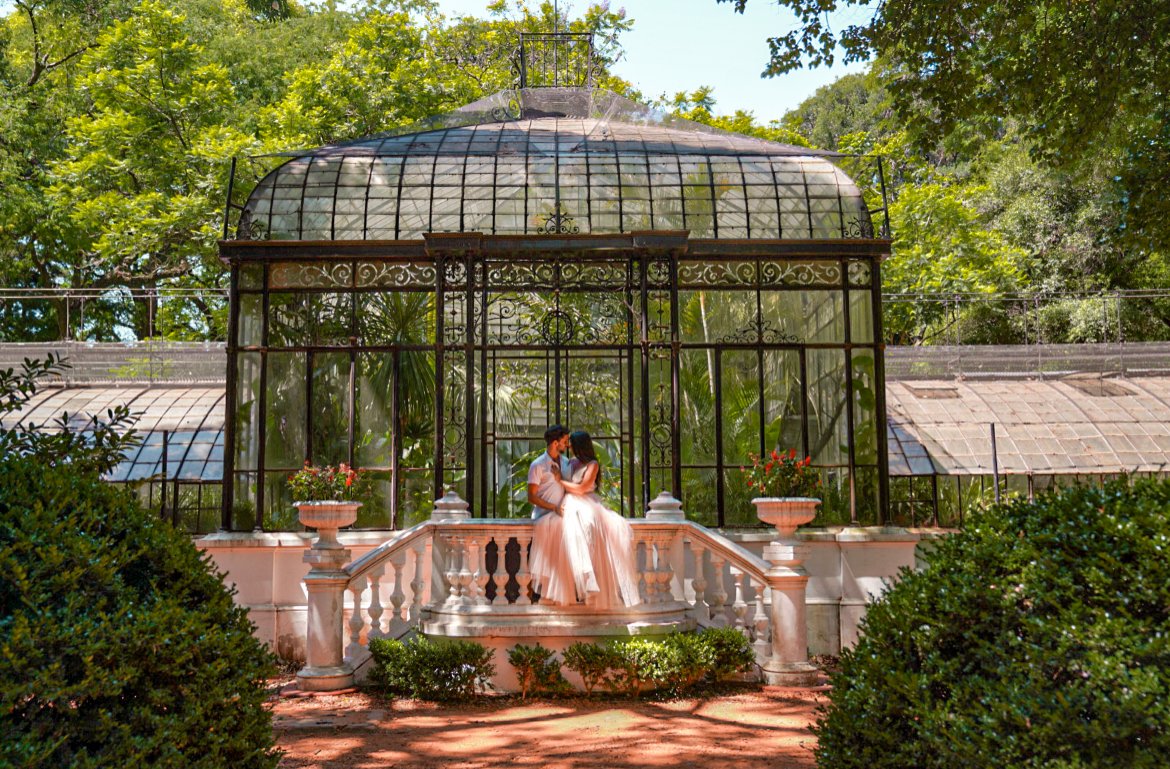
The Botanical Gardens are a beautiful area to walk around in Buenos Aires.
Japanese Gardens
We believe that native activities are always a priority when traveling. Nevertheless, since they are next to Palermo Wood's, they deserve a mention.
Come in and take a look at the Japanese culture and it's peaceful artificial lagoons. Tickets are around $2 USD (as of January 2022).

The Japanese Gardens of Buenos Aires are located in the neighborhood of Palermo.
Plaza Serrano
Plaza Serrano is a square in the neighborhood of Palermo with a lot to offer. During the daytime on the weekends, there is a craft fair with street vendors. At night, many bars and clubs open, creating a pleasant atmosphere to walk around and have a drink.
There are also some really great restaurants in the area worth checking out, and lovely street art.
Recoleta Cemetery
It seems crazy to recommend a cemetery, but it is very beautiful and is the resting place of many important characters in history. We suggest getting a guided tour here, as you'll be able to see the important headstones.
Recoleta Craft Fair
Every weekend you will find right next to the cemetery and the cultural center a craft fair full of craftsmen exhibiting their artwork. This includes handmade earrings, books, sweaters, decorations for the house and so much more. And the best part is that prices are very accesible!
Caminito (La Boca)
Going to La Boca is one of the best things to do in Buenos Aires for those that love color and vibrance. This is a passage of approximately 150 meters, in the neighborhood La Boca, where many immigrants used to live back in time. It's very colorful and there are also a lot of street artists and art sellers. Also, around the corner you will find restaurants with live tango shows.
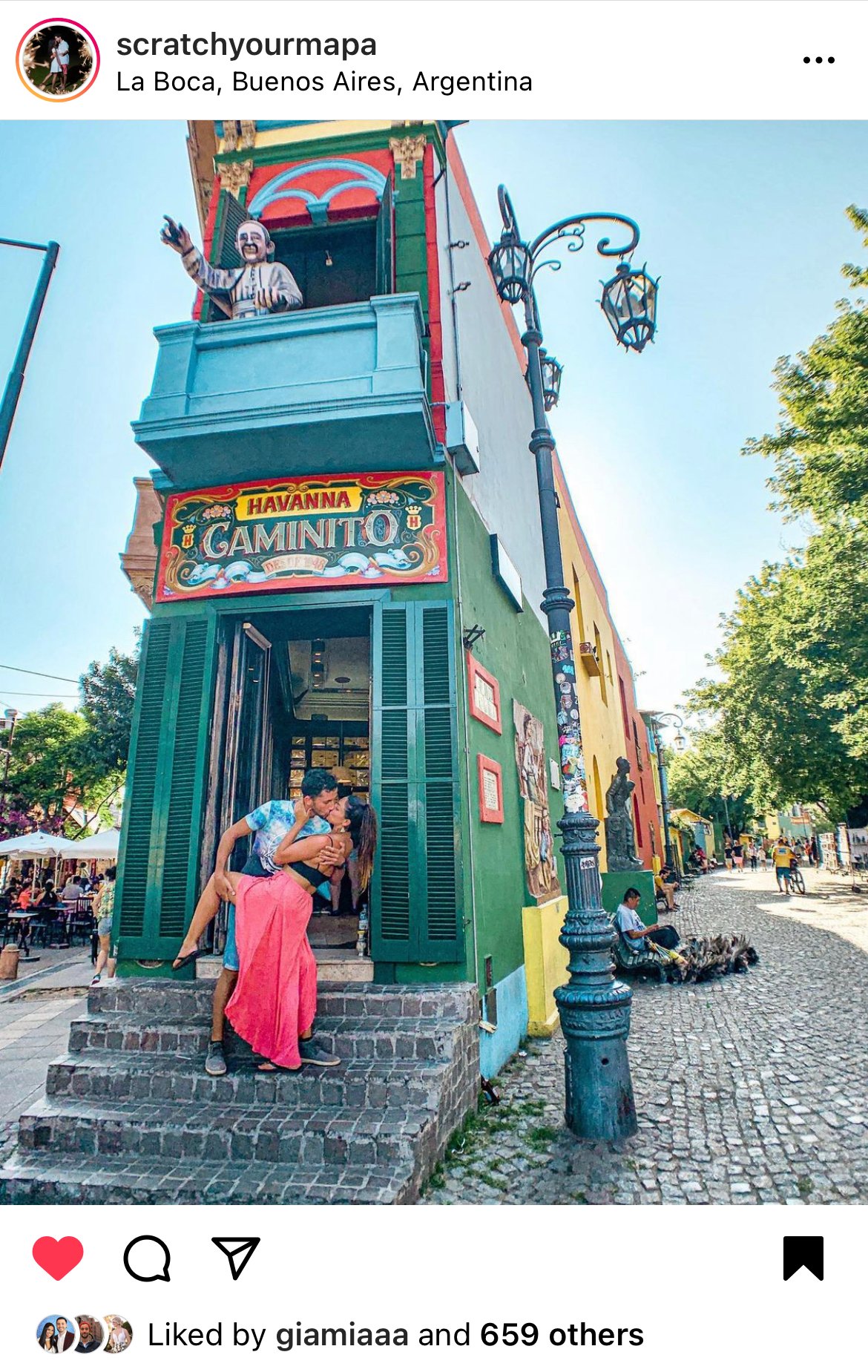
This area is full of color, barbecues, and tango. Caminito is one of our favorite things to do in Buenos Aires.
Important note: Be careful when you go there, especially if you decide to go on a bus. La Boca, besides this specific street where Caminito is, isn't a very safe place to be wandering around, and it's in the border of the city (divided from other counties by a river).
If you don't get off on the right bus stop, you may be taken through a bridge into a neighborhood that is very risky. In this particular case we suggest you to take an Uber. Check out other apps that can help you in our travels.
Want to book an organized tour here? We actually have our own one we run!
Centennial Park
In the heart of Caballito (a nice neighborhood in the actual center of the city) you can find this beautiful park. It has a craft fair during the weekends, a lake in its center, and lots of green space. They usually do outdoor activities too.
Floralis Genérica
This is a beautiful piece of art located right next to the Law School of UBA (University of Buenos Aires). The 18-ton metal flower works the same way a regular flower does; it opens up at dawn and closes at sunset. There are 4 times a year where it remains open all night: May 25, September 21, December 24 and December 31.
Puente de la Mujer
This piece of art is not only a symbol of the city, but also a practical bridge to allow ships go through the canal that contains it. Its dynamic & modern design, combined with the illumination around it, makes it a great spot for a picture to frame.
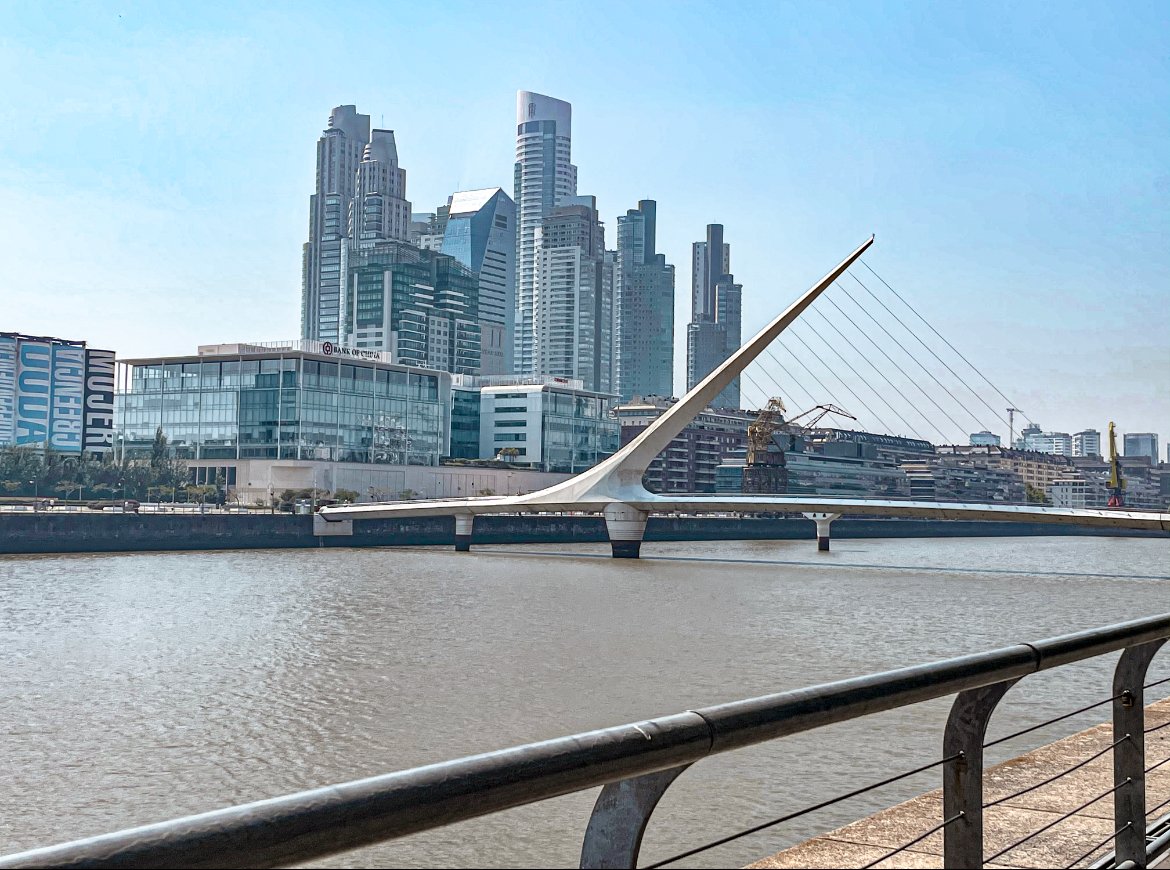

Puente de la Mujer is located in Perto Madero, one of the nicest neighborhoods in Buenos Aires.
Parque de los Niños
In the north corner of the city, almost on the border with Greater Buenos Aires, you will find Parque de los Niños.
This park not only has a lot of green areas, but also offers great views of the Rio de la Plata and all ships sailing around. You will also find what they call "dry beaches", which are areas with sand and big umbrellas to protect you from the sun.
Bring your food and have a relaxing afternoon surrounded by nature. Something to consider is that it's hard to get here with public transportation (you will have to walk at least 1500 meters) so we recommend doing the last stretch in Uber.
How To Travel Cheaper and Better in 15 minutes!
How much more would you travel, if it costed you less resources?
With our Free eBook, you will learn how to save money and time on your future trips. Plus, you'll see the exact system we use.
Grab your copy for free when you sign up for our newsletter 👇

Parque Sarmiento
Parque Sarmiento is a huge park in the north of the city, right next to a big highway called General Paz. This park has it all: Basketball courts, paddle courts, football fields, barbecue areas and lots of green spaces. The best part? The entrance is free!
Reserva Ecológica (Natural Reserve)
Right next to Río de la Plata (the river that works as the east limit of the city) there's a huge natural reserve. The large area is full of native flora, with many paths for people to discover by walking or (our recommendation) by biking through them.
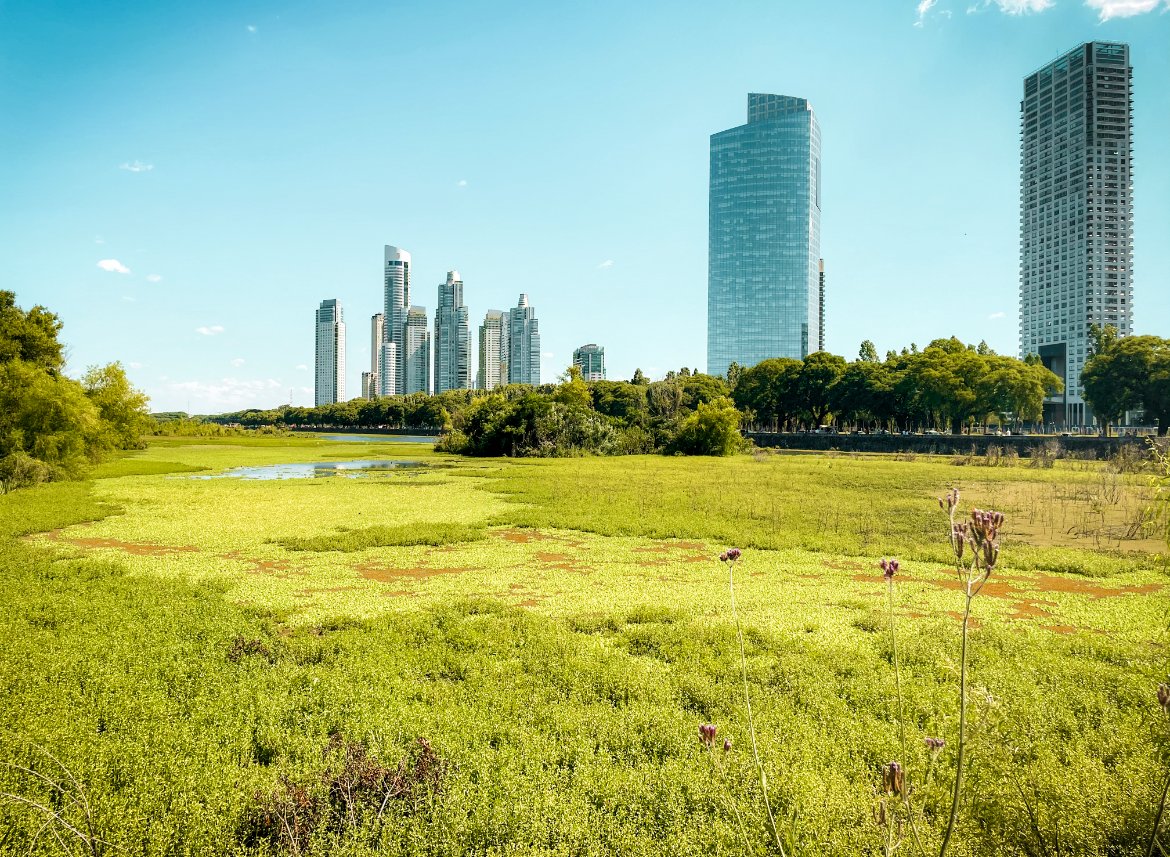
The nature reserve in Buenos Aires is great for long walks or biking.
Things to Do in Buenos Aires
You might have noticed by now that Buenos Aires does offer a lot to its visitors. In addition, there are a lot of activities that you can do throughout the day and at night.
Don't have time to read the whole article and want to save it for later? Just pin it!



Things to Do in Buenos Aires During the Day
Watch a Live Tango Show
By now you probably know "Caminito" is one of the big highlights of Buenos Aires. Good news is that you can also watch a live Tango & Folklore show while having a true Argentinian Barbecue. Right around the corner from Caminito there are many restaurants that offer great food & entertainment.
There are also plenty of theaters throughout Buenos Aires that feature live tango shows with dinner included.
Want a few options for tango shows? Here are some you can choose from:
Visit China Town
As we mentioned before, we always recommend local things over universal attractions. But if you are in the area or if you are craving some good Chinese food, visit this small area inside Belgrano neighborhood, located in the north of the city
Visit a Beer Spa
This may just have been one of the most unique things that we experienced in Buenos Aires. This is no ordinary spa, but one with jacuzzis, saunas, and most importantly- beer! Experiencing "100 Baños de Soledad" is sthe perfect romantic date for you and your loved one, and one of the most amazing things to do in Buenos Aires.



Cien Banos de Soledad is one of many experiences that Tedelupulo Spa offers.
Want to learn more about the full experience? Make sure to read our article below for everything to expect!
Watch a Football Game
If it's one thing that Argentinians are serious about, it's football. So if you happen to be visiting in the spring, then you'll definitely want to get tickets to a game! There are a few teams to choose from, but we suggest you to go to see Racing (Fede's team).
There are two important things to note- only home team fans are allowed. This is because they are seriously that intense, so don't you dare clap for the away team or you could actually get hurt. Another thing to note is that alcohol is not served inside the stadium, so make sure to grab your beers outside beforehand! Also don't miss out on the delicious grilled meats that people are cooking in the streets.

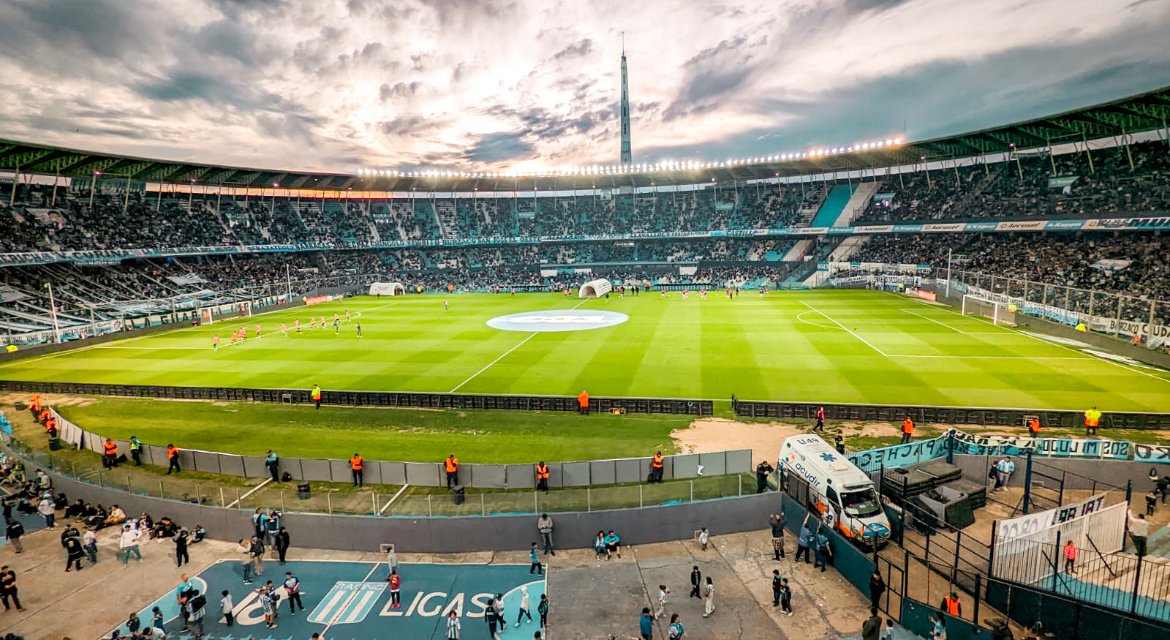
Watching a football game is one of the best things to do in Buenos Aires.
Things to Do in Buenos Aires at Night
Watch an Opera or a Symphony Inside Teatro Colón
Teatro Colón is, without a doubt, worth a stop if you visit Buenos Aires. But in order to truly appreciate its magic, we recommend you to try to get tickets in advance. This can be for any of its plays, either an opera, a symphonic orchestra, or any event that would let you enjoy the acoustic of its main stage.
Can't get tickets for a show but still want tot see the theater? Here are some tours of Teatro Colon:
Go Gamble in the Floating Casino
Believe or not, Buenos Aires has a floating Casino. Located in Puerto Madero, on the East coast, the story of this money boat is interesting. Gambling for money is not allowed inside the city, but a loophole made a casino in the water a reality.
There are dinner shows, poker tournaments, blackjack tables, roulette, and hundreds of slot machines.
Have a Drink in San Telmo
In the south of the city you will find the beautiful neighborhood of San Telmo. With its cobblestone streets and warm street lights, the atmosphere invites you to have a nice drink while enjoying many shows that the bars have to offer. You might even run into a street Tango show!
Watch a Show/Play at Corrientes Avenue
There's a reason why it's known as "the street that doesn't sleep". On this avenue, in the city center, there are some of the most well-known theaters of the city. They offer shows of every kind: Magic, Comedy, Dance, Music, and many more. Get tickets for a play or show and enjoy what this theaters offer.
Note that all plays are only performed in Spanish, so if you don't speak the language you might want to choose a musical or acrobatic show.
Have an Argentinian Pizza at Corrientes Avenue
If you listen to our advice and get tickets for a show in a theater at Corrientes Avenue, visit any of the pizza places next to the theaters. Most of them have been working for decades, and their pizzas have a special touch that only a true Argentinian pizza place can offer.
Things to Do in Buenos Aires: Food & Drink
One of the best things to do in Buenos Aires is to dive into the gastronomy. As the capital, there are such a variety of restaurants that you can find. In this article, we're just going to touch on the Argentinian specialties though.
Argentina is known worldwide for its "Asado" (In English, "grilled"). It might look like any other barbecue, but there are two main differences: the first one is that Argentinians do not like to see blood in their meet. This means that, unless you specifically ask, your meat will arrive cooked well done.

Argentina is known for their high quality meats at great prices.
The second difference is that the quality of the meat is literally one of the best in the world. The secret behind this relies in a province called La Pampa, where cows are raised free in huge terrains with high quality grass. This translates to tender, juicy & full of flavor meat.
Besides the meat, there are also some meals and drinks we suggest you to give a try.
Argentinian Asado (Barbecue)
There's not much to add to this. Wherever you go in the city, you can find restaurants and even "parrillas" (which are restaurants specialized in food that's cooked in a huge grill).
We suggest you to try the "Bife de chorizo", which is a special cut that we highly recommend, as well as the original Argentinian chorizo.
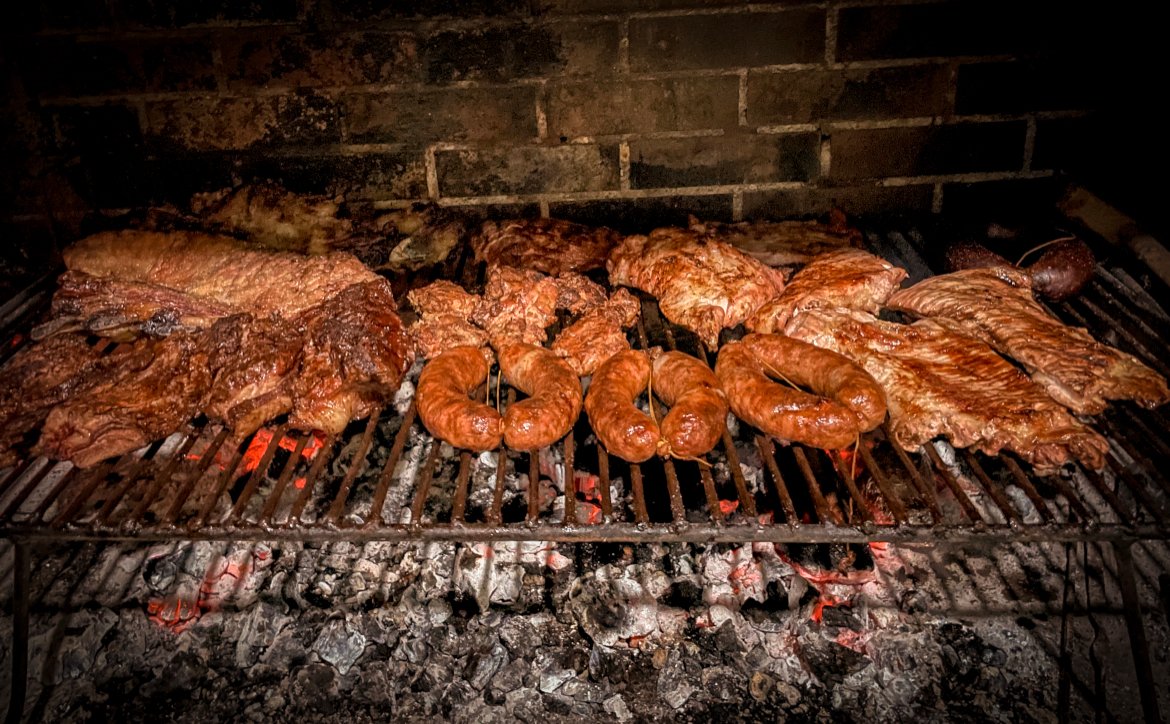
Having a typical asado (barbecue) is a must while in Argentina.
Empanadas
Another food that Argentinians are proud of are their Empanadas. Even though many countries in the world make these, Argentinian's "empanadas salteñas", "empanadas jujeñas" or "empanadas tucumanas" are some of the biggest and most tasty empanadas that you will ever encounter.
The words "Salteñas", "Jujeñas" and "Tucumanas" refer to certain provinces of the country where thouse type of empanadas were first created (Salta, Jujuy & Tucumán are all in the north west of the country).
Locro & Mondongo (in the winter)
Both dishes are types of stews. Locro is a potato/pumpkin-based stew and Mondongo an animal-loins-based one. They are both very tasty, and super hearty, We're sure you will feel like taking a nap after, but you will only find them as a meal served during the winter.
Argentinian Breakfast
In the 20th century there was a huge immigration of people from Europe, especially from Italy, Spain and Germany. This led to many European customs being introduced into the culture of Argentina, particularly into the culture in Buenos Aires.
The classic Argentinian Breakfast consists of a coffee with milk, some pastries (usually croissants), a small glass of sparkling water and sometimes a ham & cheese toasted sandwich. This is primarily adopted from Italian breakfasts, where it's all about pastries.
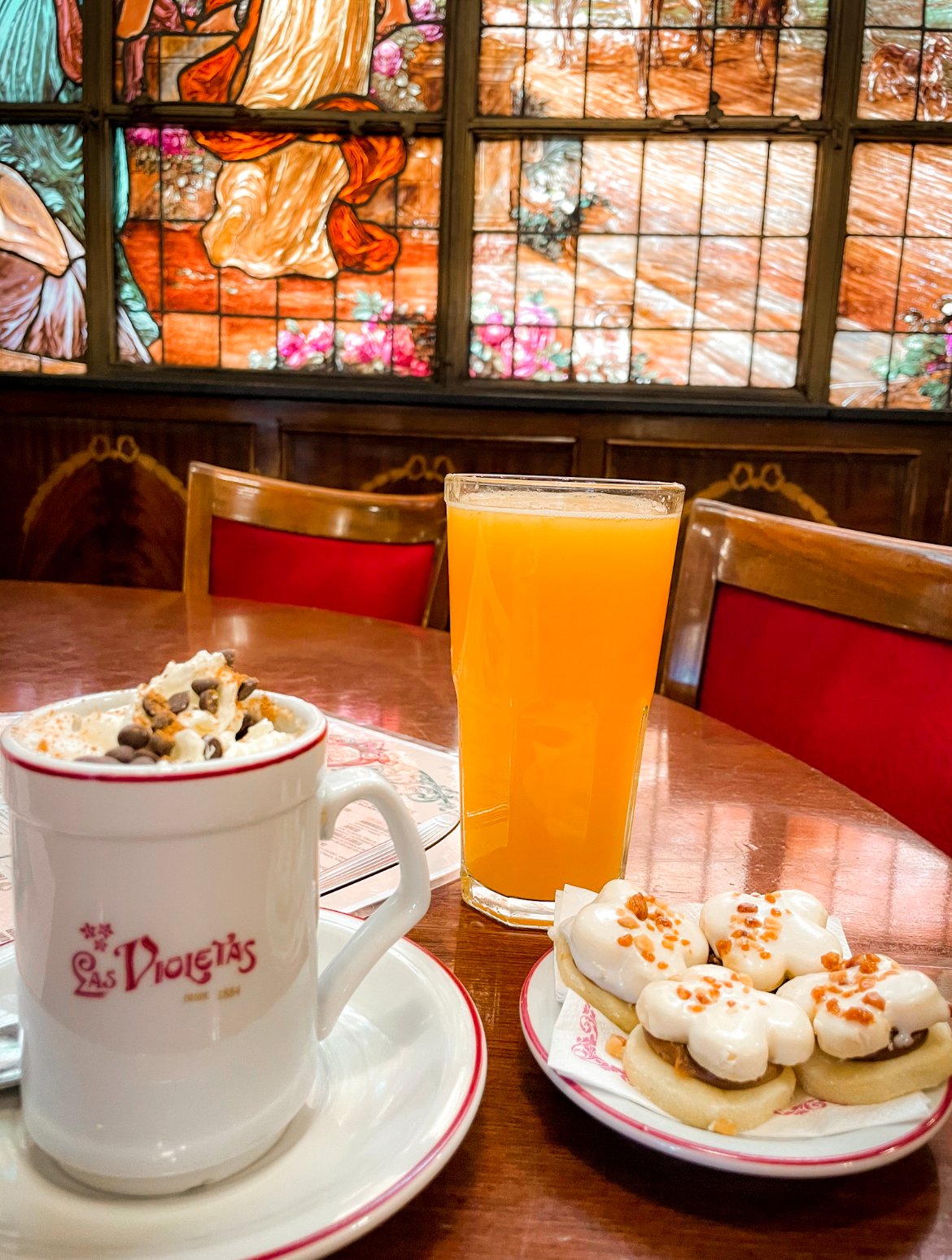
A typical Argentinian breakfast consists of coffee, fresh juice, and pastries or sweets.
Bondiola Sandwich (in costanera)
The reason why we mention "Costanera" (meaning "next to the coast") is because there's a street called "Int. Hernan M. Giralt", which is the very last street before the river.

Bondiola is one of the best sandwiches that you can get in Buenos Aires.
All over this street you will find food trucks that offer these sandwiches of the most exquisite meat. For just a couple of dollars you'll get one of the best sandwiches in Buenos Aires, with all of the toppings you could possibly imagine.

Located near the nature reserve, there are a great deal of food trucks offering bondiola sandwiches, and a wide array of toppings.
Malbec Wine
One of the best things to do in Buenos Aires (and all over Argentina) is to take advantage of just how good the wine is.
If you know about wine, or even if you don't, let us mention that the Malbec grape is the signature grape of Argentina. This grape is full-bodied with a unique flavor that will leave you with craving for more.
Dulce de Leche
Argentinians love their dulce de leche. This is similar in texture and color to caramel, but is thicker, and made different. Made out of milk, sugar and vanilla extract, it's a perfect sweet friend for a nice toast, or to have it just by itself (If you can handle ultra sweetness).
Head to an ice cream shop and try one of the many dulce de leche infused flavors that they offer.

Don't forget to grab a cone of homemade dulce de leche ice cream.
Alfajores
Oh, our dear alfajor. To put it into words, it's kind of two cookies stuffed with dulce de leche (or something similar), and usually covered in chocolate. It's the perfect addition to a cup of coffee.
Mate
It's hard to put this into words. Mate is an infusion, like tea, but it is prepared in a different way. The weed, called "yerba", comes in a big bag. You need a metal straw and a container (what is called "mate") that can be made out of wood, metal, plastic, glass or even a small pumpkin.
The Yerba is sucked through a straw, while adding more hot water after every few sips. Mate is more than just a drink, but an Argentinian experience.
Mate is a huge thing among Argentinians, to the point where you can literally run into an Argentinian when traveling abroad, and if they're drinking mate you can ask them for a sip and they will share it with you. They drink it all day, no matter when or even what the temperature is like. Mate is sacred, and a social beverage.
Fernet Cola
Fernet is a bitter alcohol. just like Campari or Aperol. It does come from Italy (as many Argentinian customs) but in Argentina it has become a habit to drink it with Coke.
We're not going to lie, Fernet is by no means our favorite, but a beloved drink of Argentina, and worth a try.
Want to know some of our favorite restaurants in Buenos Aires? Well, we have a full article coming soon!
Want to learn more dishes to try in Buenos Aires and around Argentina? Check our full guide below!
While most people assume that the cuisine of Argentina is just like the surrounding countries in South America, they are actually completely wrong!There are a ton of traditional Argentinian foods that are different than those of other South American countries, and we're here to share them with you.Argentina is full
Things to Do in Buenos Aires: Extras (outside the city)
Want to know some great areas just outside the city? Here are a few of the best things to do in Buenos Aires outside of the city center.
Tigre
Tigre (yes, it does mean "Tiger" in English) is a neighborhood north of the city, next to the river. What's special about this place is that there a big ferry station where you can catch a public boat for pennies on the dollar and go spend the day on an island, with food, a sports court and many more things.
Some of them even offer overnight options for long stay travelers. You can find many activities to do by clicking here. (Notice that the website is in Spanish, but on the top right there's a flag button to switch to English).

Tigre is just outside of the city, and a great place to enjoy the beach clubs in the summer.
Tecnópolis
There's a highway called General Paz that surrounds the city from south to north by the west limit. Right next to this highway, when close to the north, there's a big theme park that teaches you about technology.
You will also find a blind theater (literally, its performances are in pure darkness so that you use your other senses). There are also dance workshops and many more activities.
Important note: The theme park only opens during the summer (January to March).
Campanópolis
Ok, you will seriously not believe this place is located in Greater Buenos Aires. And its story is even crazier. A guy with no degree in architecture dreamed of a place like this and ended up building it out of demolition leftovers.
Campanopolis will make you feel like you are in the Middle Ages once again. Note that tickets need to be purchased in advance, and that it only opens on Saturdays from 9 am to 1 pm.

Transform your photos
One click is all it takes to make your photos look stunning. Get our latest package of Lightroom presets, Into The Wild.
Take a Day/Weekend Trip
While there are so many things to do in Buenos Aires, there are also some incredible spots around the country to check out. Argentina is much bigger than people realize, but in just a short flight you can experience a huge variety of landscapes.
Want to plan a trip from Buenos Aires to some other great places in Argentina? Here are a few options:
Is Buenos Aires Safe?
Buenos Aires is an amazing city, full of friendly people and fun things to do. Unfortunately, safety is the only thing it doesn't really have on its side. Especially being a big city in South America, there is quite a bit of petty crime in Buenos Aires, and we definitely suggest being extra careful. Don't walk around the streets with your phone out, or walk alone at night in dark areas.
Bad things can happen anywhere, and there are a lot of great people in Argentina, but there are high levels of poverty in certain areas, and pickpocketing and mugging are definitely things you'll want to watch out for. Just make sure to hold onto your things and keep an extra eye out for yourself and the ones you are traveling with.
As far as specific areas, Palermo and Puerto Madero are amongst the safest, while the micro center and Boca are two areas you'll really want to be extra careful in.
Other Things to Know About Visiting Buenos Aires
Now that you know the best things to do in Buenos Aires and the other basics of navigating the city, it's time for some final details. Here are a few other things to keep in mind for visiting.
Weather in Buenos Aires
Buenos Aires experiences 4 seasons, having very hot summers, and cold winters. Being on the water, it gets pretty humid. While it does get cold in the winter months (June-August) it doesn't really get cold enough to snow.
The Best Time to Visit Buenos Aires, Argentina
In our opinion, the two best times to visit Buenos Aires are in the spring (September- December) and Fall (March-June). The temperatures are mild, with sunny, warm days, and cool nights. If you happen to visit in the end of September/ early October, you'll get to experience the city in full bloom.
Packing for a Trip to Buenos Aires
As Buenos Aires is a big city, you'll want to have a good mix of clothing from comfortable things to explore in, as well as nice clothes for going out to eat or for nightlife. Make sure to have bags with zippers, and don't wear anything too expensive or flashy.
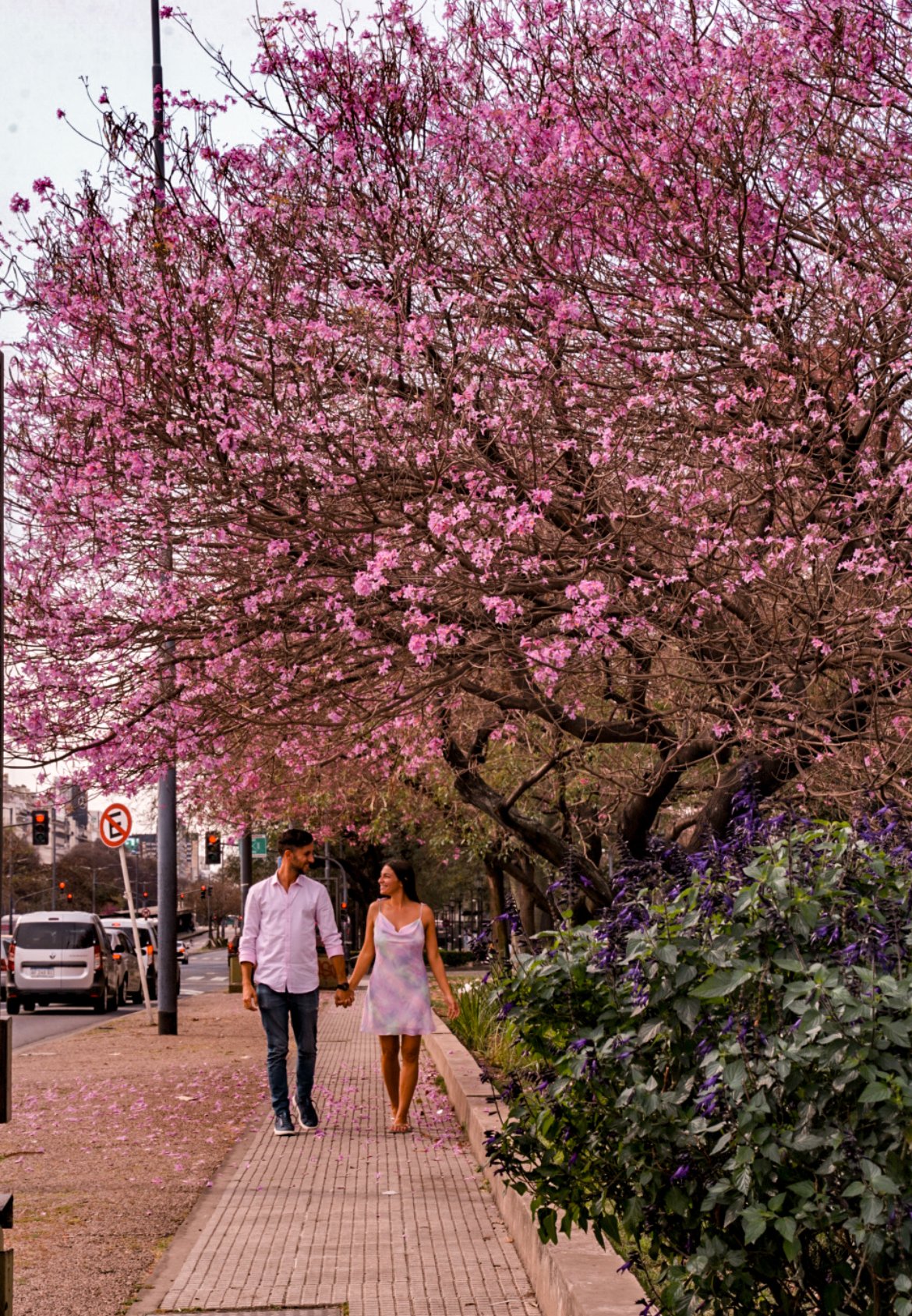
If you visit Buenos Aires in Spring, you'll get to see it in full bloom.
There are so many amazing things to do in Buenos Aires. With an endless amount of activities, a variety of neighborhoods, and a mix of cultures, we know you won't get bored here.
If you are traveling through South America we strongly suggest you to make a stop in Buenos Aires. It really has a lot to offer to its visitors and, honestly, the city does never stop so we know you'll love it.
Planning on visiting other places in South America? We have plenty of other guides to share with you. We also have a few other articles coming soon such as "Instagrammable Spots in Buenos Aires" and "Amazing Restaurants to check out in Buenos Aires".
Need help planning your next trip? Now with Scratch Your Mapa Travel Planning you can explore more and spend less! Want to learn more? Take a look at some of the travel planning packages that we have, or email us to get started.
In the meantime, here are some articles that we know you'll love:

Like this article? Please share it with your family and friends, so that we can continue to keep creating free travel guides for you! It takes just a second, and would mean the world to us. Thanks for being here!

